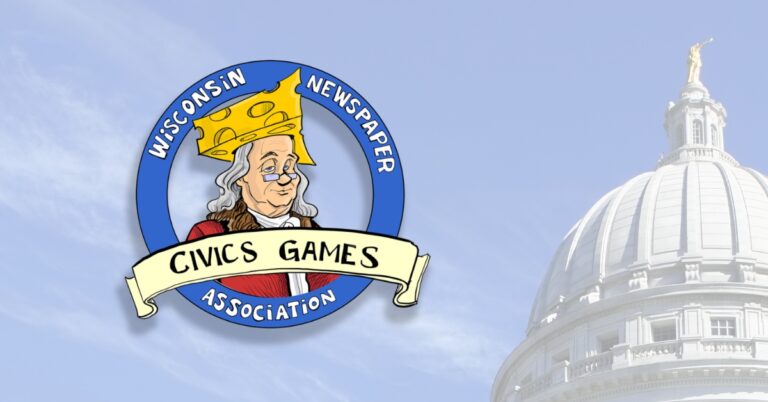The Capitol Report, produced by WisPolitics.com — a nonpartisan, Madison-based news service that specializes in coverage of government and politics — provides a weekly analysis of issues being
debated in Wisconsin state government. It is underwritten by the WNA and produced exclusively for its members. WisPolitics President Jeff Mayers is a former editor and reporter for the Associated Press and a former political writer for the Wisconsin State Journal. The WisPolitics logo can be downloaded here.
Editor’s note: This column is provided to Wisconsin Newspaper Association members by WisPolitics.com. Proper attribution to WisPolitics.com is appreciated. Also, please publish the tagline that is included at the end of the column.
Democrats keep up pressure in gerrymandering debate after Supreme Court sends issue back to lower courts
The great gerrymandering debate continues after the U.S. Supreme Court tossed the hot political potato back to lower courts.
The bottom line: district lines in Wisconsin won’t be changing for this year’s elections.
But that isn’t stopping Democrats from keeping up the pressure.
On the day after the June 18 high court decision, some 150 people gathered in the state Capitol to call on legislators to support nonpartisan redistricting.
Protesters held signs reading “make every vote matter” and “strong democracies need fair maps,” while others gave speeches claiming the current Wisconsin maps deny citizens the full power of the vote.
The rally, organized by the Wisconsin Fair Maps Coalition, comes a day after the U.S. Supreme Court’s decision to send back a challenge to the state’s Republican-drawn maps to federal district court.
State Sen. Dave Hansen, who this session authored Senate Bill 13 aiming to establish nonpartisan redistricting, said he disagrees with the high court’s decision, claiming it ensures “the problem of rigged elections will continue at least through the current election cycle.”
The Green Bay Democrat said nonpartisan redistricting is necessary for taking the responsibility of drawing legislative boundaries out of the hands of politicians — a practice he says is one of the “drivers of extreme partisanship” — and ensuring every vote counts.
“Under the current process, many people think their vote matters, but in many legislative matters, the partisan advantage for one party or the other is so significant that voters practically forfeit their right to choose their legislators,” he said, adding a nonpartisan process would do more to create open, fair and competitive elections.
Marla Stephens, a member of Citizen Action of Wisconsin, echoed Hansen’s call that every vote should count. Stephens said her group supports legislation like SB 13 and its companion bill in the Assembly — both of which died this session — that create a transparent, fair and impartial redistricting process.
Stephens said change will come when citizens demand their legislators and future candidates support partisan redistricting.
“Any partisanship is too much partisanship when it hinders the fairness of our elections,” she said. “The voters should choose their representatives, and not the other way around.”
The problem is that the Republican-run Legislature won’t return before the elections.
Meanwhile, Republicans celebrated the unanimous opinion to return the case to a lower court — a decision that leaves the maps intact ahead of the November elections.
Assembly Speaker Robin Vos, R-Rochester, and Senate Majority Leader Scott Fitzgerald, R-Juneau, said in a joint statement they’re “confident with the U.S. Supreme Court guidance, the lower court will find the Democrat activists’ case is without merit.”
“Democrats have been using the maps as an excuse for their failure to connect with Wisconsin voters,” they said. “We believe the redistricting process we undertook seven years ago fulfilled our constitutional duty, and followed all applicable laws and standards that are required in redistricting.”
The 41-page decision, which rules the Democratic plaintiffs in the case lack standing while failing to address the broader issue of partisan gerrymandering, comes after the court heard oral arguments in the case last October. Before that, a three-judge panel in 2016 had ruled the maps Republicans drew in 2011 amounted to an unconstitutional partisan gerrymander.
Chief Justice John Roberts in the 9-0 opinion wrote the justices will return the case to the lower court for the plaintiffs to provide “concrete and particularized” evidence that would show Wisconsin’s political lines affect their votes.
The 12 Democratic voters who brought the suit challenged the maps of all 99 Wisconsin Assembly districts, arguing they were harmed on a statewide level by the district lines, because the party lacks the same opportunity Republicans have to elect representatives of their choice.
But the court called the plaintiffs’ concerns “district specific,” writing that if some districts were unconstitutional, the solution “does not necessarily require restructuring all of the State’s legislative districts.”
The opinion noted while plaintiffs’ failure to demonstrate standing usually leads to dismissal, the justices chose not to do so, because this case “concerns an unsettled kind of claim this Court has not agreed upon.”
“We, therefore, remand the case to the District Court so that the plaintiffs may have an opportunity to prove concrete and particularized injuries using evidence–unlike the bulk of the evidence presented thus far–that would tend to demonstrate a burden on their individual votes,” Roberts wrote.
The plaintiffs’ lead attorney says the Supreme Court’s decision to remand is surprising.
Still, Paul Smith said the decision leaves him the option to reframe the case for victory.
“What the opinion does is leave open a great deal of options and running room on remand,” he said in a call with reporters.
Those options could entail adding several plaintiffs from districts around the state to prove statewide redistricting would be necessary, Smith said.
Justice Elena Kagan, in a concurring opinion endorsed by three other justices, suggested such an approach and argued plaintiffs might additionally pursue their case with an argument that redistricting violates the First Amendment right of association.
UW-Madison political science and law professor Ryan Owens said options like adding more plaintiffs will be up to the rules of the lower court, the Western District of Wisconsin.
Owens said the decision could spell out several outcomes for other partisan gerrymandering cases hanging in the balance, such as one in North Carolina.
The decision could mean the court is waiting to weigh in on partisan gerrymandering with a better case, he said, or justices could be using it to send a warning to politicians.
“It could be that the court is just sort of signaling right now (saying), ‘We are likely to get involved in this if you guys go too far — please behave in the next redistricting cycle,'” Owens said.
Owens said it’s unlikely the court will use the North Carolina case to put its stamp on the question of gerrymandering given the case’s similarity to those from Wisconsin and Maryland.
The Capitol Report is written by editorial staff at WisPolitics.com, a nonpartisan, Madison-based news service that specializes in coverage of government and politics, and is distributed for publication by members of the Wisconsin Newspaper Association.
Copyright © WisPolitics.com



